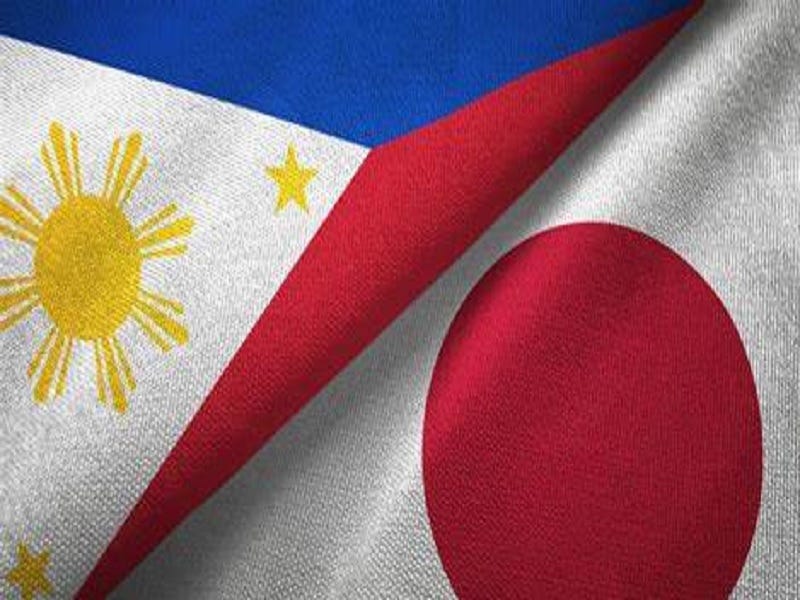This emerging scenario poses a serious threat to China’s national security interests since it amounts to Japan’s US-encouraged remilitarization driving that country’s neo-imperial expansion to Southeast Asia.
The first-ever trilateral National Security Advisors (NSA) summit took place on Friday between the US, Japan, and the Philippines, during which time they agreed to build upon their inaugural Coast Guard drills from earlier this month as the basis for further regional military coordination. This follows Japan’s pledge to shore up the Philippines’ defense capabilities via the export of non-lethal assistance such as the radar systems deal that they clinched in August 2020.
Two months ago in early April, Japan set out a new aid scheme to allow overseas defense funding, which aligns with Prime Minister Fumio Kishida’s manifesto that he shared during his last trip to the US in January of this year regarding his country’s de facto hegemonic ambitions. It envisages informally remilitarizing in violation of Japan’s post-World War II constitution by exploiting its “self-defense” clause to plot preemptive strikes under the guise of these attacks supposedly being “counterstrikes”.
Shortly after, Japan reached a deal with the US to purchase 400 Tomahawk cruise missiles in February, which was followed by those two exploring a hypersonic missile partnership one month later in March. Earlier this month, it then kicked off a new indigenous anti-ship cruise missile project. Between the unveiling of Kishida’s manifesto and Friday’s first-ever trilateral NSA Summit, the US obtained the right to use four more Philippine bases as part of Biden’s legacy-building project in that country.
Assistant Secretary of Defense for Indo-Pacific Security Affairs Ely Ratner told the Center for a New American Security (CNAS) think tank in early June that the Philippines is one of the US’ most important allies nowadays and that Biden’s focus on it will solidify his “legacy”. This senior official also said that the US is working towards “boldly linking” itself, Australia, Japan, and the Philippines all together, which suggests that its nascent trilateral alliance that took shape on Friday could constitute a form of AUKUS+.
That concept refers to the NATO-ization of the Asia-Pacific through AUKUS’ multidimensional expansion achieved via the forging of various partnerships with regional countries like Japan and the Philippines. The planned opening of a NATO liaison office in Tokyo, which France has reportedly opposed at least for the time being, could speed up these plans. This emerging military-strategic context strongly suggests that the US expects Japan and the Philippines to be the first two states to gravitate towards AUKUS.
They don’t need to officially join that structure to be part of its network since they’re each already treaty allies of its American leader, who’ll coordinate their role in containing China, which is the goal that brings all these countries together. In the event that this scenario unfolds as expected, then the US hegemon might encourage Japan to comprehensively expand its security ties with the Philippines as the first international part of its informal remilitarization policy.
That would make sense from a military-strategic standpoint considering the comparative ease of setting up Sea Lines Of Communication (SLOC) between Japan’s southwestern islands (including those disputed with China), Taiwan, and the northern Philippine island of Luzon where the US’ four new bases will be. Japan’s “Maritime Self-Defense Force” could then eventually start jointly patrolling those waters with the US, the Philippines, and perhaps Taiwan too, not to mention possibly rotating forces out of Luzon as well.
Its first overseas base was built in Djibouti over a decade ago for antipiracy purposes, but rotational rights could possibly be negotiated between Japan and the Philippines under the US’ supervision on the pretext of enhancing Tokyo’s ability to respond to natural disasters. That could keep the mission in line with its constitution’s self-defense clause while still serving to accelerate its remilitarization and tightening the naval noose around China.
This emerging scenario poses a serious threat to China’s national security interests since it amounts to Japan’s US-encouraged remilitarization driving that country’s neo-imperial expansion to Southeast Asia. America is basically trying to create a post-modern Japanese Empire in order to more effectively contain China, but these plans recklessly spike the risk of a larger war breaking out by miscalculation exactly as Kissinger predicted in his latest interview might happen if both don’t step back from the “precipice”.




"...Japan’s US-encouraged remilitarization..."
Well, that is, after all, why they dropped the bombs in the first place.
They weren't called 'Little Boy' and 'Fat Man' for nothing, you know?
"...the export of non-lethal assistance..."
Now, where have we heard about that before?
"...in violation of Japan’s post-World War II constitution..."
Well, what's a little thing like a constitution or some silly pedantic theory like 'The Rule of Law' between friends? What a good thing the Russkies never got a look into developing the Pacific theatre after the war, eh? Just think what might have happened if they'd got any closer to Japan, have already freed China and Korea, had Little Boy and Fat Man not done their job in a timely enough manner!
"...exploiting its “self-defense” clause..."
Oh look: another one like 'non-lethal assistance'! Birds of a feather flock together, I guess. They're firm and fast friends, these are, though, aren't they: Dr Stranglove's best buddies?!
"...part of Biden’s legacy-building project in that country."
And all Putin's fault: 'That man's just gotta be removed from power!' (or words to that effect).
"...recklessly spike the risk of a larger war..."
Vampires and werewolves may be myths, but rabid dogs are not. People can get rabies too, you know? It's a hideous death.